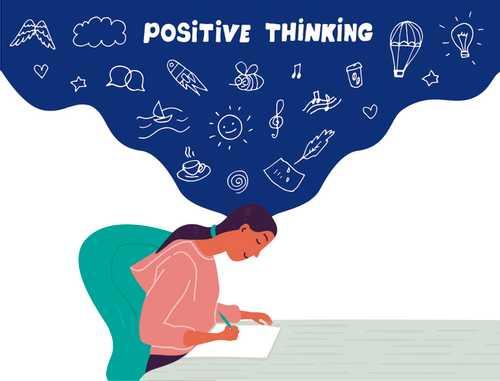“I’m Dreading This Week” and 2 Other Mindsets to Reframe Right Now
Curated from: thriveglobal.com
Ideas, facts & insights covering these topics:
4 ideas
·3.22K reads
6
Explore the World's Best Ideas
Join today and uncover 100+ curated journeys from 50+ topics. Unlock access to our mobile app with extensive features.
One mindset to capitalize on
Studies show that positive thinking reduces stress, anxiety, boosts mood, and correlates with greater heart health.
Looking for the upside in every situation is entirely within your control. It is a skill that is wise to practice.
187
1.15K reads
The “I’m stuck” mindset
Sometimes we feel that we are out of solutions to the problem we face. However, uncertainty may be the launching pad for creativity.
When you feel stuck, try to tell yourself that being stuck is a good place to help you generate a lot of ideas. Even if your list of ideas feels crazy, that's often where some of the best ideas come from.
189
752 reads
Thinking “I’m dreading the week ahead”
When you feel anxious about the days ahead, it might be because there's a daunting task or conversation.
If you're feeling this way, try to pinpoint the source of the stress. Maybe you're running behind schedule, or you made a social plan you wish you hadn't. Once you know the cause, reframe it by listing a few possible positive outcomes to ward off undue worry and stress.
175
631 reads
“I will never get this done"
An intimidating project can sometimes make you feel like you can't see your way through it.
If you find yourself doubting your ability to finish a time-consuming task, think of a recent time where you overcame a similar hurdle. You can even write down or verbalise the specifics. "I finished on time and my manager congratulated me on a job well done." If you've done it once, you can do it again.
169
695 reads
IDEAS CURATED BY
Anika Dhar's ideas are part of this journey:
Learn more about personaldevelopment with this collection
How to create a productive environment
The importance of self-care in productivity
How to avoid distractions
Related collections
Similar ideas
8 ideas
3 ideas
How to Reframe Black and White Thinking and become less emotionally reactive
Therapy in a Nutshell
12 ideas
Read & Learn
20x Faster
without
deepstash
with
deepstash
with
deepstash
Personalized microlearning
—
100+ Learning Journeys
—
Access to 200,000+ ideas
—
Access to the mobile app
—
Unlimited idea saving
—
—
Unlimited history
—
—
Unlimited listening to ideas
—
—
Downloading & offline access
—
—
Supercharge your mind with one idea per day
Enter your email and spend 1 minute every day to learn something new.
I agree to receive email updates

